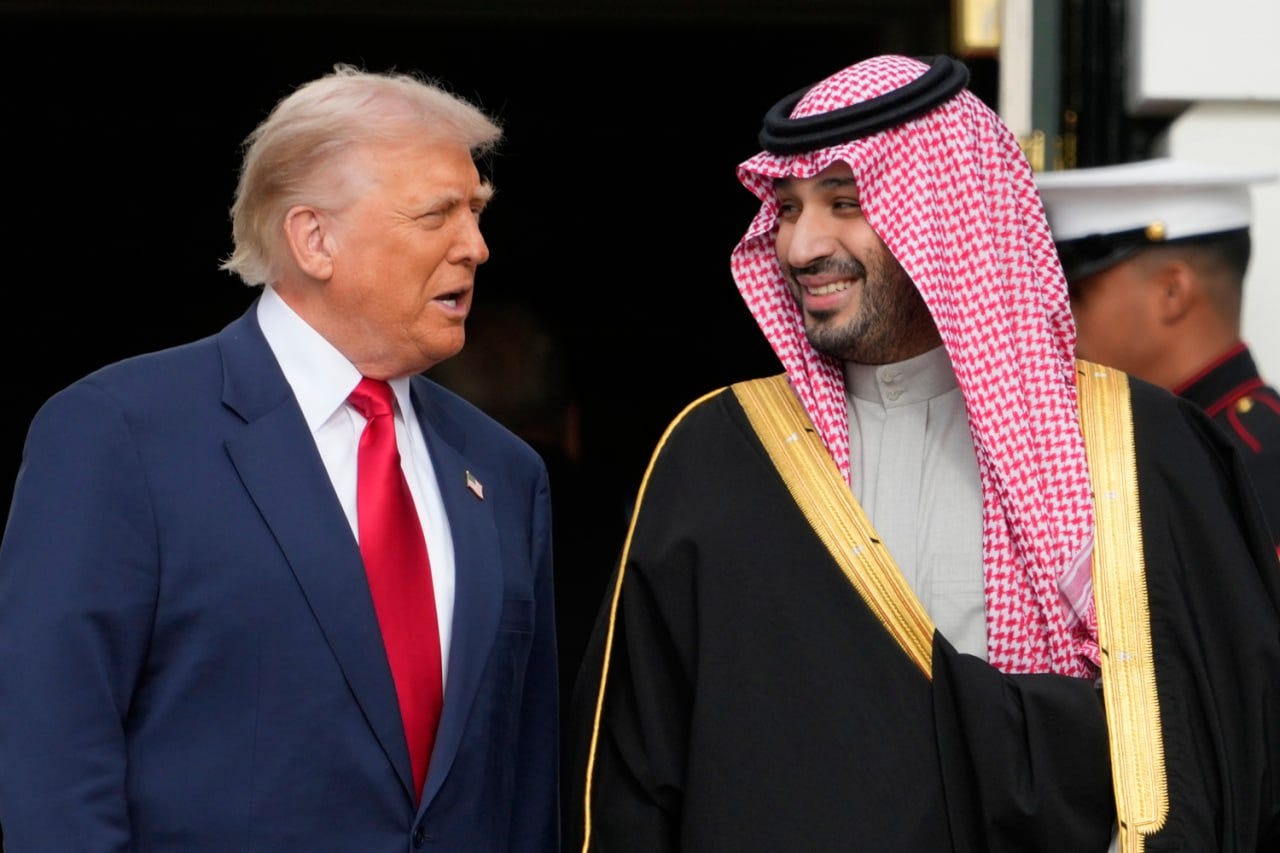MBS Signals Readiness for Israel Normalization as Trump Welcomes Him to Washington
White House ceremony marks Riyadh’s bold public shift toward Israel, while Washington doubles down on military, political, and economic support for the Kingdom
United States, PUREWILAYAH.COM - Saudi Crown Prince Mohammed bin Salman used his high-profile visit to Washington to make one of his clearest public signals yet that Riyadh is ready to move toward normalization with Israel.
The message was delivered from inside the Oval Office, where bin Salman appeared alongside U.S. President Donald Trump for a joint press interaction ahead of closed-door meetings.
When asked about the Abraham Accords, the Crown Prince plainly stated that Saudi Arabia “wants to be part of the Abraham Accords,” while adding that such a step would need “a clear path to a two-state solution.”
The statement marked a notable and public shift in Riyadh’s regional positioning, aligning more openly with U.S. and Israeli objectives.
Bin Salman’s remarks came as Washington and Riyadh present a united front in regional politics, even as both governments face widening international condemnation for driving wars, blockades, and human rights violations across West Asia.
Trump Shields Bin Salman Over Khashoggi Murder
The press conference also revived the question of Jamal Khashoggi’s murder. When journalists pressed the Crown Prince on the issue, Trump quickly moved to deflect scrutiny, saying:
“Things happened. Mohammed bin Salman did not know anything about it. Don’t embarrass our guest.”
This visit marks bin Salman’s first trip to the United States since the 2018 assassination of Khashoggi—killed by Saudi agents inside the Kingdom’s consulate in Istanbul.
Khashoggi, a Saudi national and U.S. permanent resident living in Virginia, became a symbol of Riyadh’s brutality and repression.
U.S. intelligence agencies previously concluded that bin Salman approved the arrest or killing of Khashoggi. The ease with which Trump dismissed the matter underscored Washington’s ongoing willingness to excuse Saudi abuses when aligned with American geopolitical interests.
An Orchestrated Welcome
To underline the significance of the visit, the White House arranged a fighter-jet flyby as bin Salman arrived—an unmistakable show of military partnership between the two governments.
The spectacle highlighted the depth of U.S.–Saudi coordination even as both capitals remain deeply implicated in regional destabilization, from Yemen to Gaza to Lebanon.
A New Wave of U.S.–Saudi Agreements Worth Nearly $1 Trillion
The visit culminated in the announcement of an expansive set of economic, military, and technological agreements:
Saudi investments in the United States will rise to nearly $1 trillion, up from $600 billion pledged earlier this year.
A new U.S.–Saudi Strategic Defense Agreement was signed, strengthening military and security coordination.
Washington approved a large arms package, including future F-35 deliveries and nearly 300 American tanks.
The two sides finalized a civil nuclear cooperation framework, laying the groundwork for long-term collaboration.
Agreements were reached on critical minerals, artificial intelligence, trade standards, and financial regulation.
These deals further cement Saudi Arabia’s integration into the American political, military, and economic system—despite global condemnation of Riyadh’s role in regional wars and internal repression. (PW)


